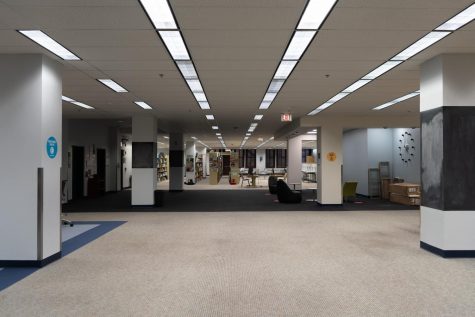CFAC pulls union members from ArTT
July 28, 2021

Columbia’s part-time faculty union, also known as CFAC, has pulled its members from participating on the Antiracism Transformation Team.
In a letter to ArTT fellows, CFAC leadership informed the group that they are pulling their four members who served on the team due to “circumvented procedures” outlined in the union’s collective bargaining agreement by the college when the team was first created. The letter continues to say “repeated attempts” by CFAC to work in “good faith” with the college regarding the pay, make-up and purpose of the team have failed.
”We cannot allow any member to participate in this college created committee until we resolve these issues,” the CFAC letter stated. “Doing so would violate our contract and the National Labor Relations Act, and set precedent that will harm all union members.”
In a February 2021 Letter to the Editor published in the Chronicle, Raquel Monroe and Folayemi Wilson, co-directors of Academic Diversity, Equity and Inclusion, responded to an email to ArTT members from CFAC stating that the college was excluding the union in decisions regarding DEI and the creation of ArTT.
Monroe and Wilson wrote that the union’s claims were not true. CFAC leaders responded in a Letter to the Editor, also published in the Chronicle, stating that Monroe and Wilson had “side-stepped” their concerns by publicly responding.
The launch of the Antiracism Transformation Team was first announced October 8, 2020, in an email from President and CEO Kwang-Wu Kim, as reported by the Chronicle, as part of the college’s plan created in summer 2020 to become an antiracist institution.
The letter from CFAC to ArTT fellows addressed the importance of becoming an antiracist institution, but said its concerns need to be resolved before moving forward.
“CFAC and its members, in word and deed, have a deep commitment to social justice and inclusion,” the letter stated. “It’s not simple rhetoric. It is how we live and teach. Therefore, it is our hope that we will soon reach a resolution that not only protects our union members but also allows full and equitable participation for all on the committee, moving forward, in partnership with our students and fellow faculty and staff.”
Andrea J. Dymond, the vice president of CFAC, said the union looks forward to resolving the issue with the administration through bargaining following union procedures.
“This is such an important issue,” Dymond said. “We very much were interested and happy to have the participation of our membership, of course. But until we can have the issues and concerns that we’ve addressed resolved, we’re unable to continue. But the moment that they are addressed and resolved, we look forward to continuing participation of seated members in the ArTT effort.”
In a statement to the Chronicle, the United Staff of Columbia College said the work of ArTT is important and voiced its support for the continuation of bargaining between CFAC and the administration.
“USCC and CFAC operate under different bargaining agreements, so what action may work best for one of us may not be best for the other,” the statement read. “ArTT has started to lay out a plan of anti-racism work this institution is long overdue for. Historically, and especially in Chicago, radical structural change in education has come from the support and work of educational unions. We look forward to and urge the Administration to bargain in good faith with CFAC so we can work to build stronger relationships between our labor unions and ArTT. The work of becoming a more equitable place to work and the work to become an antiracist institution will take us all.”
In a statement to the Chronicle, the college expressed disappointment in CFAC’s decision to pull members from their work with ArTT.
“If the part-time faculty union is opting to stop participating in the ArTT’s important work because of CFAC’s continued disagreement over control of the team’s work and structure, that is unfortunate. The College has, from the ArTT’s inception, felt it important that the team have agency and be as self-directed as possible. The College believes that this diverse team is best positioned to determine how to move forward and how to continue this crucial work for the College and its students.”
In response to the Chronicle’s request for an interview, ArTT officials said they had no comment on the situation at this time.







